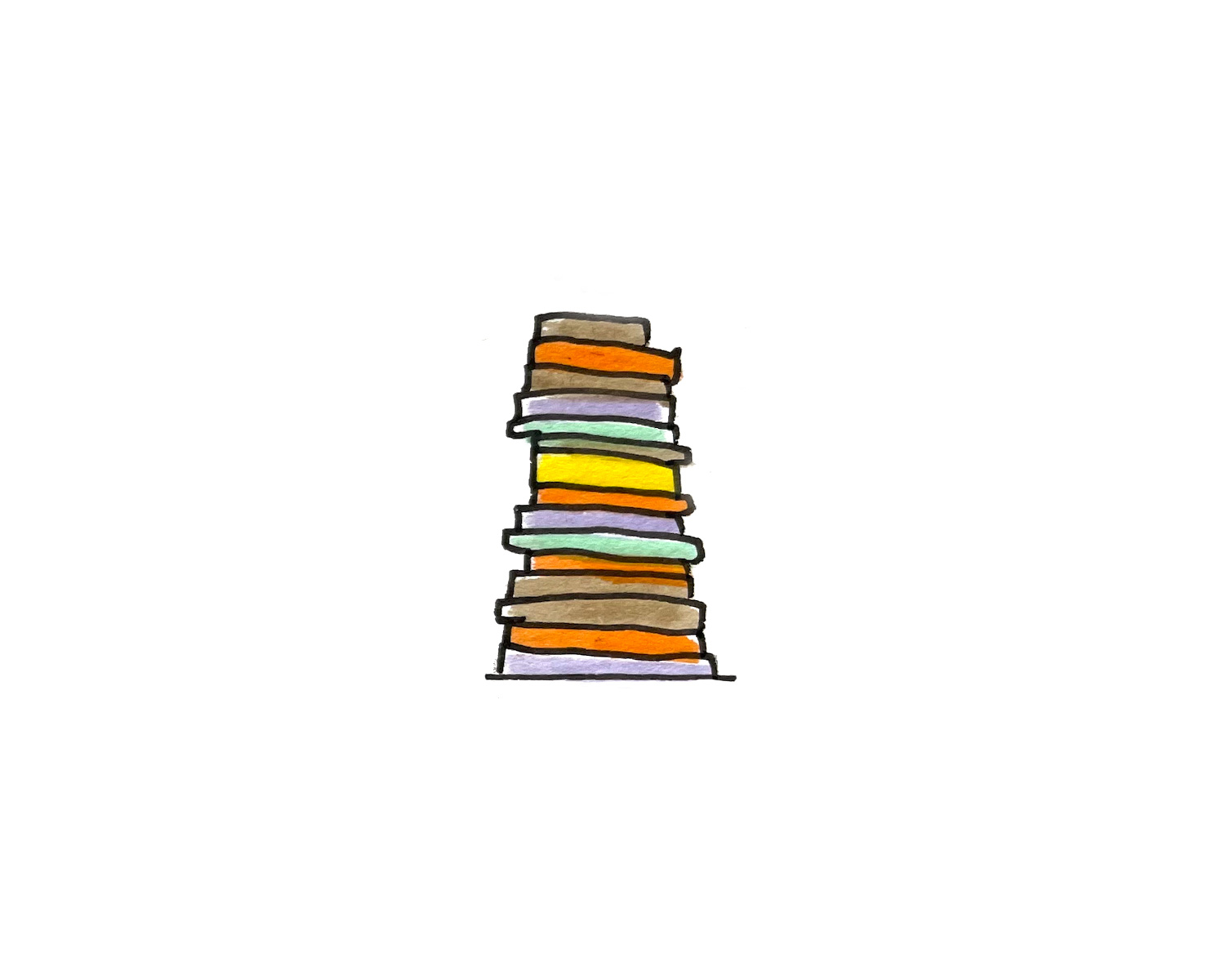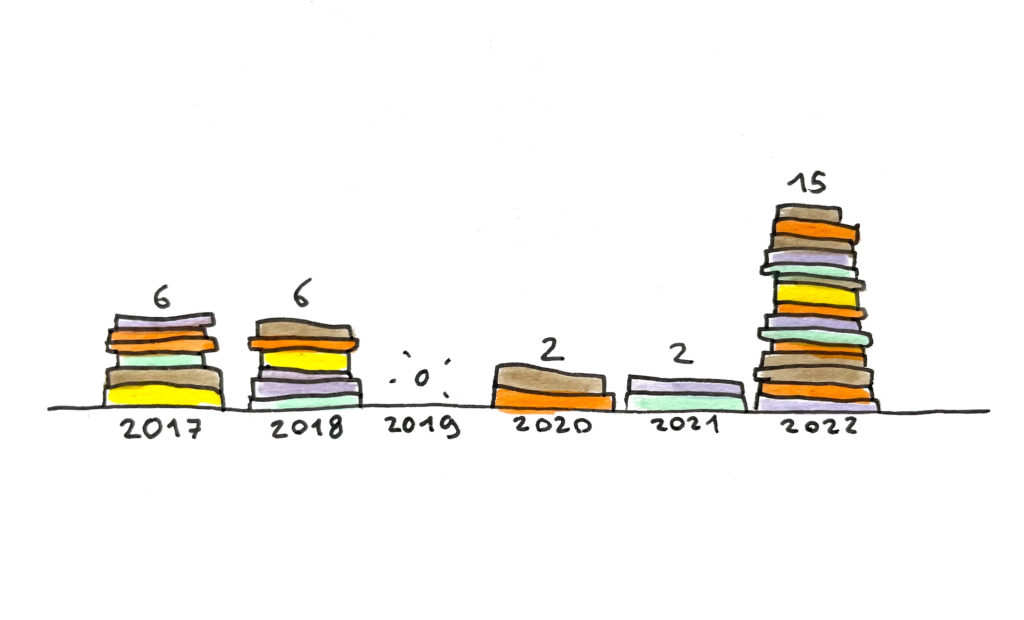Our ability to focus on individual tasks is being destroyed daily. I’ve definitely lost mine.
When I was working at G-Star, the open space office didn’t allow for much privacy or calm. As a project manager, my days were an uninterrupted flood of notifications. Deep work was almost impossible.
I found two strategies that enabled me to focus:
- Working after everyone else was gone. This was not ideal.
- Hiding in the empty cafeteria and turning off all notifications. This was better.
Now as a freelancer and remote worker, the challenges are quite different. But we all know the feeling. The constant stream of notifications and attention-grabbing events feels inescapable.
The lightbulb moment
While planning and reviewing the past year at the start of 2022, I stumbled onto this interview with Johann Hari, who was promoting his new book . And his conclusion completely resonated with me.
We’re being robbed of our ability to focus. Every day. Every hour. The causes according to Johan Harri are:
- a constant flow of notifications from messages, emails, and even ads,
- consumption of media that focuses on bite-sized content (Twitter, Instagram, YouTube short),
- deteriorating sleep quality or reduced sleep,
- and quite frequently, bad air quality.
Kill the phone and desktop notifications
At some point, I felt overwhelmed and annoyed by the constant notifications. So I implemented some drastic measures:
- I turned off all notifications on my phone. I wouldn’t see any notifications for Whatsapp messages. All Instagram likes–and even phone calls–were on mute. My phone was in a sort of permanent airplane mode. I backtracked a bit on this. Using the “concentration mode” on the iPhone, blocking notifications can be handled more intelligently. For example, my notifications are now turned off every day from 9 a.m. to 5 p.m., or from the time I arrive at the office to the time I leave. Only contacts in my favorites can bypass the filters.
- On my laptop, I installed an app called “Quitte.r” It closes any attention-grabbing app after 10 minutes (e.g., Slack, Whatsapp, Signal). All notifications are off. Only meeting reminders get through.
- I try to unsubscribe from as many email notifications as possible.
Reading books is impossible
When your ability to focus is destroyed, reading a book is tough. I tried to stop consuming short content (i.e., YouTube shorts and Instagram) and start focusing on long-form content, a.k.a. books!
I find that reading is a good way to mentally retrain yourself to handle longer focus periods. Every year, I take part in the Goodreads Reading Challenge. It’s a good way to motivate myself to read. Here are the figures:
So what changed?
I bought an e-reader
This isn’t for everyone, and some people hate them. But in my case, the e-reader is the perfect solution. I’m always able to carry the three books I’m currently reading with me. New books to purchase are just a click away. I can do this in bed with only one eye open…
E-readers also allow you to read in bed with all the lights off—while your partner is sleeping. And the screen light color on some models adjusts to warm light, which will have you ready to fall asleep in 10 min!
And obviously, a constant selection of reading material helped even more.
Better air quality
As Johann Hari points out, some studies suggest that air quality can hamper your ability to focus.
The most obvious example of air quality and its impact on focus can be found in meeting rooms. Imagine a small meeting room filled with people. After a while, the CO2 levels become so high that everyone becomes dumber and slower (source).
So, open the windows at least once a day to bring in fresh air.
Fewer cappuccinos
Coffee isn’t directly linked to reduced focus, but it has an impact on the next item in my list: sleep.
I have reduced my caffeine consumption by delaying my first coffee of the day as neuroscientist Andrew Huberman suggests. To be honest, I am not a hundred percent certain how scientifically sound this is, but it was a good enough excuse for me to consume one less coffee a day.
I usually also try to avoid caffeine after 2 p.m.
A good, long and regular sleep.
To be honest, better sleep had the single biggest impact on my focus. This is partly due to a change in my bedtime routine. This includes going to bed earlier, reading before sleep, complete darkness, drinking less coffee, and consuming less alcohol…
Another aspect of improving sleep quality—one that is out of “my control”—are the kids. They are a bit older now, so naturally, my nights are getting less chaotic. Yay!
Just get enough restful sleep.
It all feels like an uphill battle.
It’s a constant struggle, and the bad habits keep creeping back. I feel as if our world is designed to kill our focus day in and day out. Taking a sabbatical, as Hari did, without a phone or an internet connection isn’t possible for most of us most of the time.
Regaining and keeping our focus is an ongoing modern-day task/duty.
How can you do this? Reading Hari’s book would be my first recommendation.
Have you experienced something similar?
How did you handle it?




Leave a Reply